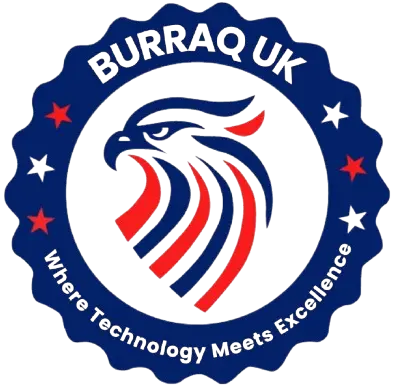Food Safety
At Buraaq UK, we are committed to ensuring that all food handled, prepared, served, or stored under our responsibility meets the highest standards of safety, hygiene, and legal compliance. Whether for staff, clients, or the public, we recognise that food safety is essential to protecting health, maintaining trust, and complying with UK food safety legislation.Our food safety approach is built on prevention, control, and continuous improvement — ensuring that every person involved in food handling understands their responsibilities and follows best practices.

Aim of Food Safety
To ensure that all food handled, prepared, and served by Buraaq UK is safe, hygienic, and compliant with UK food safety laws, thereby protecting public health, preventing foodborne illnesses, and maintaining a high standard of operational excellence.
Course Overview
Food Safety
- All Food Handlers
Any employee involved in the preparation, handling, serving, cooking, packaging, or storage of food.
- Must complete a certified Food Safety Level 1 or Level 2 training (depending on role).
- Includes kitchen staff, catering assistants, and warehouse/dispatch staff dealing with food products.
- Supervisors and Managers in Food Operations
Responsible for overseeing food safety procedures, compliance, and staff performance.
- Must complete Food Safety Level 3 training.
- Required to conduct or review HACCP plans and internal audits.
- Cleaning and Support Staff in Food Areas
Staff responsible for cleaning or maintaining areas where food is handled.
- Must be trained in basic food hygiene and cross-contamination prevention.
- New Starters, Interns, and Trainees
Must complete a food hygiene induction before starting work in any food-related area.
- Formal training must follow within a specified period (e.g. within 1 month).
- Temporary, Agency, or Volunteer Workers in Food Roles
Must be given appropriate food safety training and supervision based on the tasks performed.
| Course Code | Curriculum Title | Credit | DLH |
|---|---|---|---|
| BUK1739-1 | Introduction to Food Safety | 2 | 10 |
| BUK1739-2 | Food Hygiene Hazards | 2 | 10 |
| BUK1739-3 | Personal Hygiene | 2 | 10 |
| BUK1739-4 | Safe Food Handling and Storage | 2 | 10 |
| BUK1739-5 | Cleaning and Disinfection | 2 | 10 |
| BUK1739-6 | Waste Management | 2 | 10 |
1. Introduction to Food Safety
- Importance of food safety
- Legal responsibilities of food handlers and employers
- Consequences of poor food safety (e.g., food poisoning, legal action)
2. Food Hygiene Hazards
- Types of hazards: biological, chemical, physical, and allergenic
- Common sources of contamination
- How hazards affect food safety and consumer health
3. Personal Hygiene
- Handwashing techniques
- Use of protective clothing (e.g. gloves, hairnets, aprons)
- Reporting illnesses and injuries
4. Safe Food Handling and Storage
- Temperature control: safe cooking, cooling, and storage ranges
- Use of thermometers and recording logs
- Stock rotation (FIFO) and expiry date management
5. Cleaning and Disinfection
- Cleaning schedules and methods
- Safe use and storage of cleaning chemicals
- Preventing cross-contamination through proper cleaning
6. Allergen Awareness
- Identifying the 14 main allergens under UK law
- Preventing cross-contact
- Labelling and communicating allergen information clearly
7. Pest Control
- Signs of pest infestation
- Reporting and prevention procedures
- Maintaining a pest-free environment
8. Waste Management
- Correct segregation and disposal of food and packaging waste
- Minimising food waste responsibly
- Legal and environmental considerations
- Food Handlers
- Cleaning Staff Working in Food Areas
- Supervisors and Managers in Food Operations
- New Starters, Interns, and Trainees in Food Roles
- All Modules within this qualification are assessed internally by the approved training Centre and externally verified by BURRAQ UK. The program uses a criterion-referenced assessment approach to ensure that learners successfully meet all required learning outcomes.
- A Pass in any unit is granted only when the learner submits valid, reliable, and authentic evidence that demonstrates achievement of the assessment criteria. The Assessor is responsible for reviewing this evidence and confirming that the learner has attained the expected standard
